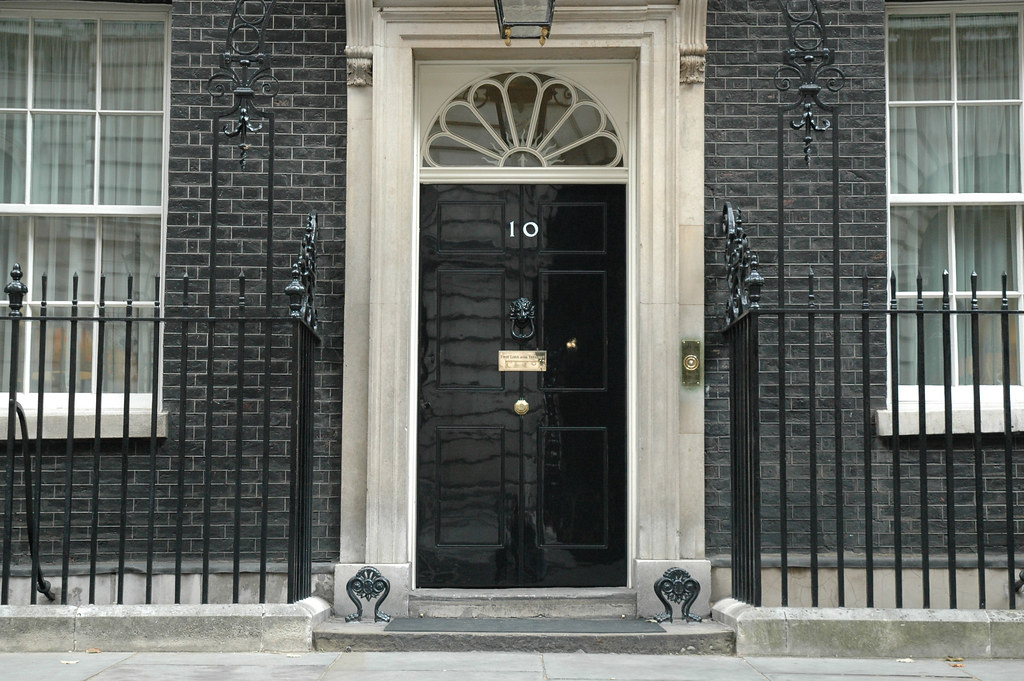28 July 2022
The Problem
Policies not personalities.
By Lynda Goetz

I am one of the ‘lucky’ few; one of the 160,000 Conservative party members who gets a vote on our new Prime Minister. Apart from the fact that this does seem a slightly odd way to choose a new leader for the country, it is not without precedent, of course, and may be slightly more democratic than the ways in which it used to be done (see Grey Days by J R Thomas in last week’s Shaw Sheet). I joined the Conservative party back in 2019 to cast my vote for Boris – who was clearly the person needed to break the impasse over Brexit. Boris did ‘Get Brexit done’ and for that, as Rishi Sunak pointed out the other night, he deserves 10 out of 10. I will not, however, be adding my name to the petition for him to return, which apparently some 13,000 Conservative party members have already done. Boris Johnson achieved some important things during his premiership, namely, Brexit (although there is a way to go on that yet), the vaccine rollout and his support for Ukraine. However, he also got plenty of things wrong and he has, for now at least, lost the trust and support of his MPs.
In the eyes of many Conservative supporters, the main thing Boris and his government got wrong was to follow an essentially socialist agenda (economically and culturally) and to allow a toxic, anti-free-speech ‘woke’ culture to flourish in our institutions in the name of diversity. He also, perhaps due to several factors, including his own brush with death, world-wide pressure and undue influence from one particular group of scientists and mathematical modellers, became during Covid an authoritarian rule-maker who was not prepared to allow the people of this country to make their own judgments. This was not what we had voted for. The fact that he was throughout supported by the Opposition, who if anything urged stronger regulations and restrictions, shows just how far he strayed from the Tory belief in smaller government. For party members, there was little to be done to show their dismay, except to withhold their vote when it came to by-elections. Two previously Tory seats were lost, one in Devon to the Lib Dems and the other, Wakefield, one of the so-called ‘red-wall’ seats, which reverted to Labour. Those at Westminster still didn’t seem to get the message. The MPs decided that the problem was the personality, not the policies. Boris, they decided, had to go.
The entire country is now being presented with the unedifying spectacle of two ‘continuity candidates’ sparring on national television and throughout the media to determine, by virtue of the votes of fewer than 200,000 people (or around 0.32% of the adult population of the UK) who should become the next Prime Minister. Unfortunately for the Conservative party, neither of these candidates is really what is needed or wanted. It is not difficult to see why we have ended up in this position when MPs at Westminster, who determine which candidates get through the early elimination rounds, are looking out for their careers and panic has set in about the proximity of the next election, but perhaps more should have looked at the ‘outlier’ candidates; those who had not been tainted by close association with Boris Johnson’s cabinet; fresh faces with bold ideas whose lack of leadership experience unfortunately sealed their fate.
Kemi Badenoch, considering her relatively unknown status, stood out and was tipped by many as exactly what the party (and the country) needed. She was backed by Michael Gove, (whom she had backed in 2019) who had clearly decided that his chance at the top job had come and gone. It is not impossible that recognising her own lack of Cabinet experience she would have had the sense to surround herself with competent and experienced advisers and ministers and gone on to regain for the Tories the countrywide support which they have currently clearly lost. It was, unfortunately, not to be. Although on 16th July the Conservative Home survey showed Badenoch with a double-digit lead amongst party members ahead of Truss, Mordaunt and Sunak, in second, third and fourth places respectively, she was knocked out in the fourth round of the parliamentary eliminations.
There is a general feeling that the country is in a mess. The unions are flexing their muscles and whilst it is important that workers’ rights and pay should not be at the mercy of employers, whether public or private, it does seem crazy, for example, that the tax-paying public should be unable to get to their own place of work because of ‘bolshie’ rail unions which do not want their members to give up outdated and inefficient working practices. This country’s productivity has been noted for some time as lagging behind that of other G7 countries (see International comparison of productivity). In 2019 average output per worker was 13% lower than other G7 countries. Although latest figures show some increase (1.7%) in this figure since the pandemic, public service productivity was 6.8% less than the average in 2019 (Productivity overview UK). Many have commented on the burgeoning NHS bureaucracy (increase in which seems to far outstrip increase in those desperately needed frontline workers of which we, like many other countries, are experiencing a dire shortage); of the inability of bodies like the DVLA and the passport office to process documentation and of the dramatic drop in any sort of customer service, particularly amongst large utility companies.
In the world of education, both school and higher education, we appear to be letting down the next generations at every turn. Not only are institutions pandering to their apparent fear of anything which challenges their held beliefs, but online teaching deprives many of a rounded educational experience, and industrial action threatens exams and marking. In the NHS diversity and inclusion appears to be taking up funding which should be being spent on nurses and doctors and not a week seems to go by without some lunatic new paper produced by an NHS trust somewhere in the country advising on such things as how ‘people with penises’ can be helped to give birth or how trans men can be given help ‘chest-feeding’. Only this week the Royal College of Obstetricians and Gynaecologists issued the ‘first draft guidance of its kind’ saying that trans men who chose to chest feed should be offered “chest-feeding support in the same manner as for cis-women”. (Apart from the rather bizarre use of the word chest, as apposed to breast, it is hard not to wonder how many people this might apply to. Statistics appear not to be available, at least publicly).
The race and diversity issues are culturally toxic and divisive. Most ordinary people are more than happy to ‘live and let live’. They do not want public (or even company) money to be spent (wasted) on teaching ‘white privilege’ or explaining 100 different kinds of gender. These are minority issues and actually have little to do with whether your politics are Left or Right. What most people would like is for government to focus on the things which really matter; properly educating the next generation and ensuring that their learning experiences are rewarding and enriching; looking after the wealth of the nation without excessive spending on inconsequentials, vanity projects or burgeoning bureaucracy; looking after the health of the nation, even if that entails a root and branch reform of the monstrous bureaucratic hydra which the NHS has become and finally ensuring that the history and culture of the country is respected and not eroded by transient ideologies. These things may require tax cuts or they may require prudence. What is certain is that you cannot have both tax cuts and increased public spending. Somewhere along the line compromises need to be made. These will not always be popular with the voters, although they may in time come to see the sagacity of making them.
Neither of the current contenders for the Tory crown appear to offer a sufficient move away from the shambles which seemed to characterise Boris’s time in office. Boris wanted to ‘please everyone all of the time’. Was he never told that this is impossible? The rather aggressive debate on Monday evening at least ended in civility on both sides and they agreed that each would employ the other in their Cabinet should they win the vote to be PM. Most of their policies were sufficiently alike for this not to be a problem, although on the economy the differences could be telling. It is probably most important that they bring into the fold those outliers with ideas, otherwise Sir Keir with his revised centrist Labour agenda could send them into opposition (unless, of course, this leads to division within the Labour party). Perhaps the best way of ensuring this doesn’t happen is by joining the rest of the country and simply watching from the sidelines. Withholding ones vote from both the continuity candidates might just suggest to the winner that some of those outliers with ideas should be brought on board at least. Neither of the contenders is the right personality, but the problem remains the policies. Will Westminster listen?


